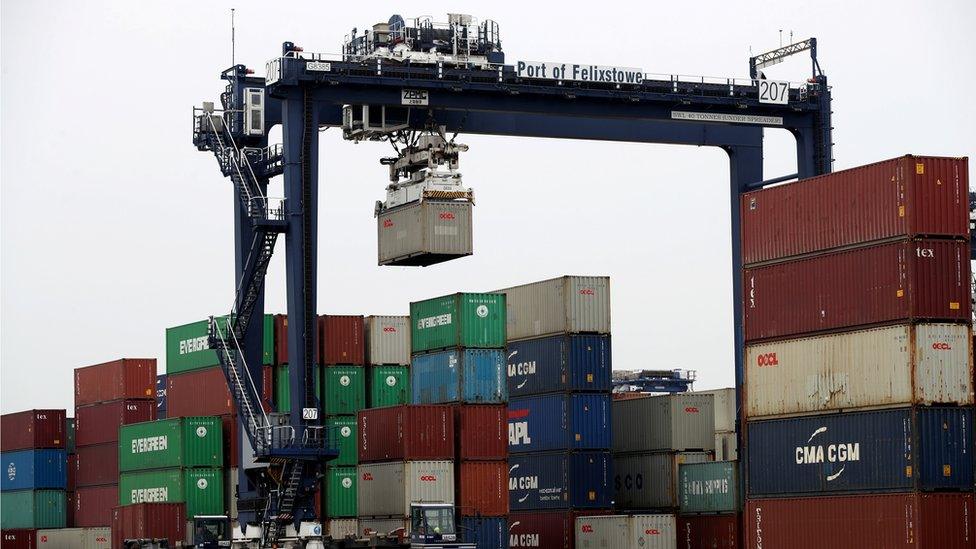London Gateway and Tilbury ports bid for 'free port' with Ford factory
- Published
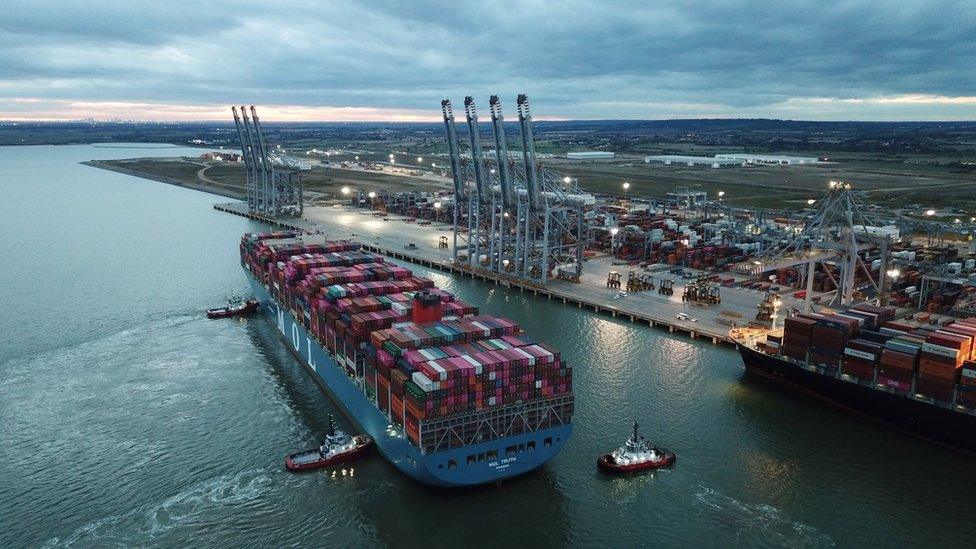
DP World London Gateway opened in November 2013
Two major ports on the Thames Estuary have joined forces in a bid to became a new "free port" area which bosses claim could spark jobs and investment.
The Thames Freeport would include the ports of Tilbury and London Gateway, in Essex, as well Ford's Dagenham plant further west.
The government is looking to create 10 free ports across the UK and will announce its choices in March.
Free port status would allow the area to work outside normal customs rules.
Alan Shaoul from London Gateway owners DP World said it would "enable trade with the rest of the world".
He said free ports would "be an effective way of underpinning Britain's economy post-Brexit and post-Covid".
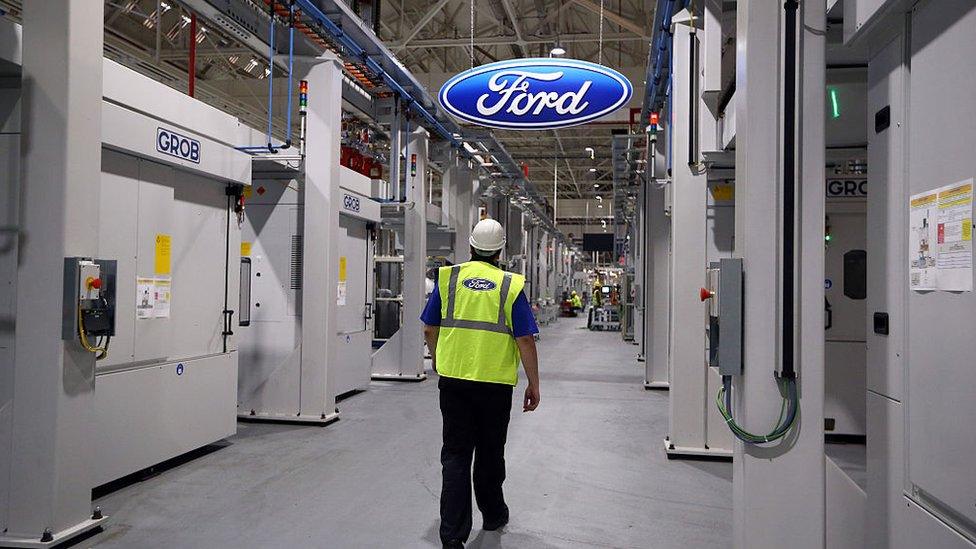
The freeport area would include the Ford Dagenham engine plant
Stuart Wallace, from Forth Ports, which owns the Port of Tilbury, said the area would focus on "green logistics and clean energy production" and "ensure the Thames Estuary remains a magnet for investment".

Some 16 million tonnes of cargo goes through the Port of Tilbury each year, making it the largest port on the Thames.
London Gateway opened in November 2013 and has its own logistics park and rail terminal.
If the joint bid is accepted by government, the team behind it claimed it could create up to 25,000 new jobs and £5.1bn in gross value added.
The consortium of businesses, enterprise groups and councils said there was 1,700 acres of development land within the potential freeport area.

What are free ports?
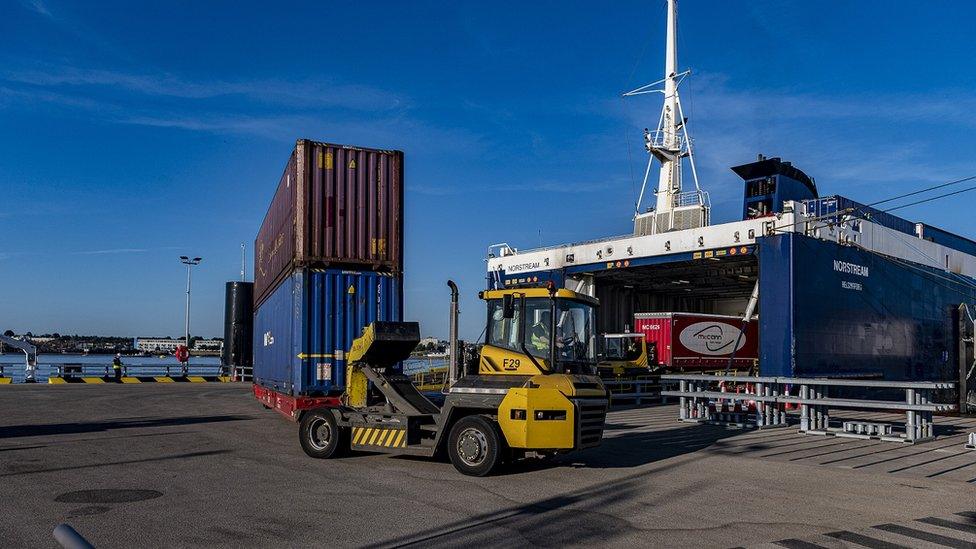
The Port of Tilbury includes Britain's newest port, Tilbury2
Also called free trade zones, they are designated areas where the normal tax and tariff rules of the country in which they are based do not apply.
They allow goods to be imported, manufactured and re-exported without being subject to checks, paperwork, or import taxes, known as tariffs.
This means raw materials can be imported, then engineered into whole products for export.
Typically, companies operating in the zone pay lower taxes, such as reduced VAT and lower rates of employment tax.
But critics argue they simply defer the point when import tariffs are paid, which then still need to be paid at some stage.

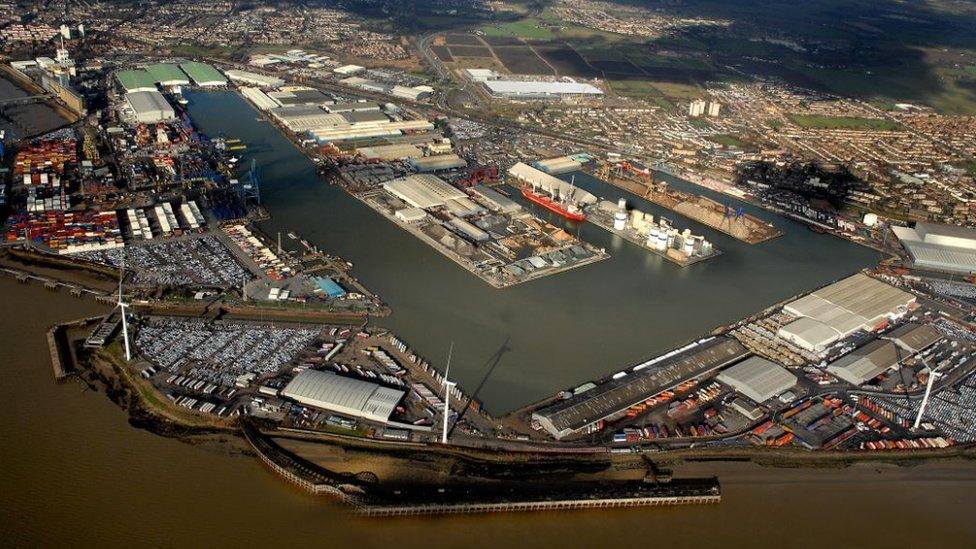
The Port of Tilbury mainly deals with forestry products, construction materials, paper, grain, recyclables and warehousing space
Both Barking and Dagenham Council and Thurrock Council back the bid, the consortium said.
The free port area would also include the Thames Enterprise Park in Stanford-le-Hope as well as the Ford engine plant in Dagenham.
Dr Graham Hoare, from Ford of Britain, said the free port area would "enable us to consider a range of other business opportunities on the Dagenham estate in the future".
The factory has been in the East London town since 1931, and employs about 1,800 workers.

Find BBC News: East of England on Facebook, external, Instagram, external and Twitter, external. If you have a story suggestion email eastofenglandnews@bbc.co.uk, external
Related topics
- Published3 February 2021
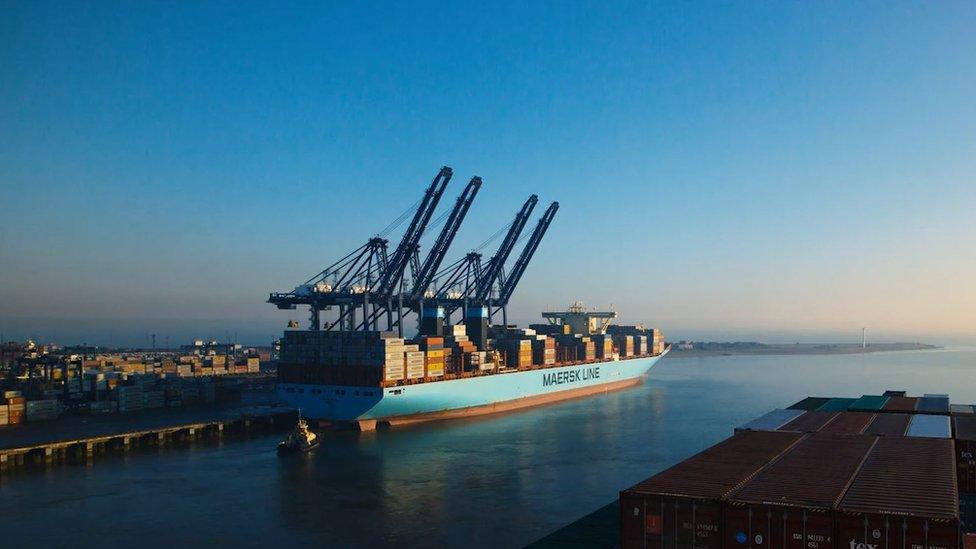
- Published2 August 2019
